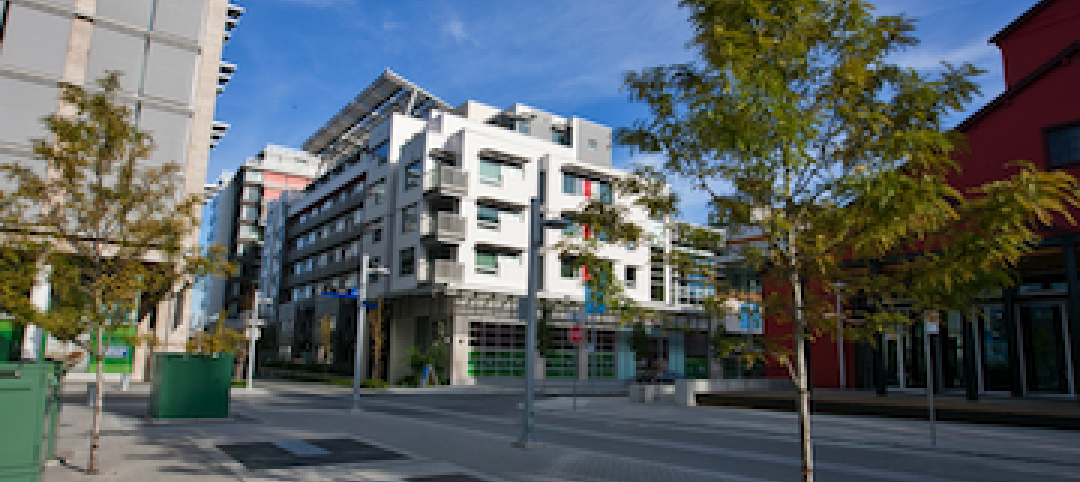Today Abbott Construction announced that they have merged with STO Building Group to become a member of the STO family of companies. The merger will allow both firms to leverage each other’s geographic reach to better serve clients with multiple locations and enhance the services and areas of expertise they can offer across that expanded footprint.
“We see joining the STO family as an exciting next step in what we can offer our clients and our employees without sacrificing who we are and have been for the past 35-plus years,” says Troy Stedman, president and CEO of Abbott. “We know from first-hand experience working together that our companies value integrity, collaboration, and a client-first way of doing business, so formally joining forces makes perfect sense.”
“From our existing relationship working with Abbott on two significant joint venture projects, we are confident that this merger is a great fit for both companies,” says David Layton, president and CEO of Layton Construction, who Abbott will report through. “And with Layton’s proximity to the Pacific Northwest and existing presence in Southern California, we’re looking forward to helping Abbott grow in those core markets.”
Founded in 1983, Abbott is a West Coast commercial builder known for superior planning and execution. They work with clients in a variety of sectors such as healthcare, hospitality, education, non-profit, retail, and tenant interiors. Some of their most notable recent projects include the Mary Bridge Children’s Hospital and University of Puget Sound Welcome Center in Tacoma, WA; FAA Northwest Mountain Regional Headquarters in Des Moines, WA; Big Fish Games Seattle headquarters, the UCLA Margo Leavin Graduate Art Studios in Culver City, CA, and h. Club Los Angeles.
“The Pacific Northwest has been a key strategic market for the STO Building Group, and Abbott is a terrific addition to our family of companies,” says Robert Mullen, STO Building Group CEO. “By joining forces, both firms can leverage each other’s geographic reach and take advantage of each other’s strengths, relationships, geographies, and resources to better serve our clients across the globe.”
Formerly operating as the Structure Tone Organization, STO restructured as the STO Building Group in 2018 to provide a platform for growth that allows each of its member companies to maintain their cultural identity while leveraging the strengths of a multicompany organization. In the last four years, Canadian firm Govan Brown and US firms Ajax Building Company, BCCI Construction, and Layton Construction have merged with STO Building Group.
“The opportunity to merge with such an incredible firm as Abbott is exactly why we shifted our structure to STO Building Group,” says James Donaghy, STO Building Group executive chairman. “We value the reputation and heritage of the firms who merge with our organization, and each has kept its identity as a way to honor that legacy. As we continue to grow, we want to respect that history, but also reflect the collective expertise our companies offer and allow our employees to benefit from the larger organization’s resources.”
Now part of the STO Building Group family of companies, Abbott will keep its identity, and its current leaders will retain an ownership position in the organization and maintain their roles as the senior leadership team of the business. It is anticipated that new job opportunities will be created as a result of the merger to support the company’s projected growth for 2021 and beyond.
Related Stories
| Nov 2, 2010
A Look Back at the Navy’s First LEED Gold
Building Design+Construction takes a retrospective tour of a pace-setting LEED project.
| Nov 2, 2010
Wind Power, Windy City-style
Building-integrated wind turbines lend a futuristic look to a parking structure in Chicago’s trendy River North neighborhood. Only time will tell how much power the wind devices will generate.
| Nov 2, 2010
Energy Analysis No Longer a Luxury
Back in the halcyon days of 2006, energy analysis of building design and performance was a luxury. Sure, many forward-thinking AEC firms ran their designs through services such as Autodesk’s Green Building Studio and IES’s Virtual Environment, and some facility managers used Honeywell’s Energy Manager and other monitoring software. Today, however, knowing exactly how much energy your building will produce and use is survival of the fittest as energy costs and green design requirements demand precision.
| Nov 2, 2010
Yudelson: ‘If It Doesn’t Perform, It Can’t Be Green’
Jerry Yudelson, prolific author and veteran green building expert, challenges Building Teams to think big when it comes to controlling energy use and reducing carbon emissions in buildings.
| Nov 2, 2010
Historic changes to commercial building energy codes drive energy efficiency, emissions reductions
Revisions to the commercial section of the 2012 International Energy Conservation Code (IECC) represent the largest single-step efficiency increase in the history of the national, model energy. The changes mean that new and renovated buildings constructed in jurisdictions that follow the 2012 IECC will use 30% less energy than those built to current standards.
| Nov 1, 2010
Sustainable, mixed-income housing to revitalize community
The $41 million Arlington Grove mixed-use development in St. Louis is viewed as a major step in revitalizing the community. Developed by McCormack Baron Salazar with KAI Design & Build (architect, MEP, GC), the project will add 112 new and renovated mixed-income rental units (market rate, low-income, and public housing) totaling 162,000 sf, plus 5,000 sf of commercial/retail space.
| Nov 1, 2010
John Pearce: First thing I tell designers: Do your homework!
John Pearce, FAIA, University Architect at Duke University, Durham, N.C., tells BD+C’s Robert Cassidy about the school’s construction plans and sustainability efforts, how to land work at Duke, and why he’s proceeding with caution when it comes to BIM.
| Nov 1, 2010
Vancouver’s former Olympic Village shoots for Gold
The first tenants of the Millennium Water development in Vancouver, B.C., were Olympic athletes competing in the 2010 Winter Games. Now the former Olympic Village, located on a 17-acre brownfield site, is being transformed into a residential neighborhood targeting LEED ND Gold. The buildings are expected to consume 30-70% less energy than comparable structures.
| Oct 27, 2010
Grid-neutral education complex to serve students, community
MVE Institutional designed the Downtown Educational Complex in Oakland, Calif., to serve as an educational facility, community center, and grid-neutral green building. The 123,000-sf complex, now under construction on a 5.5-acre site in the city’s Lake Merritt neighborhood, will be built in two phases, the first expected to be completed in spring 2012 and the second in fall 2014.















